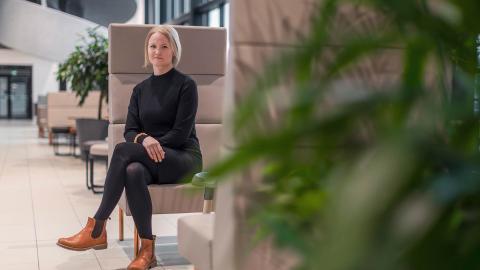Sponsored content: created in partnership with Lappeenranta-Lahti University of Technology.
Prioritising sustainable practices in international business is critical for tackling the many challenges facing the world today. As this is a rapidly evolving field, students who want to succeed professionally will benefit from enrolling at an institution that can boast wide-ranging industry partnerships and an impressive global reputation, such as LUT Business School in Finland.
“The days of sustainability being relegated to dedicated professionals or departments are over,” says Laura Olkkonen, associate professor of business studies at LUT Business School. “Today, sustainability is on everyone’s agenda. So instead of just understanding the basics of sustainability, business students now need to understand sustainability within the specific contexts of what they are studying,” says Olkkonen. “The most pressing sustainability topics need to be understood deeply but also in terms of how they relate to broader, systemic and grand challenges.”
In addition to combining an in-depth understanding of the subject with a helicopter view, students of sustainable business need to be cognizant of temporal developments too. “At LUT Business School, we have scholars studying sustainability within every discipline,” Olkkonen says. “We follow developments on every front closely. Our teaching is based on research, so the students are a key part of the academic conversation.”
Compared with other educational institutions, students enrolled in the bachelor’s programme in sustainable international business at LUT Business School will benefit from a number of other unique advantages, such as its location. With the business school situated within the broader LUT University, students can develop their understanding from both a technical and practical perspective.
“As well as the business school at LUT University, we also have two engineering schools that support students to develop and test new technologies,” Olkkonen says. “Being a well-respected business school also means that we work continuously to develop our teaching and research. We also have systems in place to monitor our progress and identify areas for improvement in this fast-moving field.”
To keep pace with the constant evolution of different sustainability initiatives around the world, students at LUT Business Schools are equipped with key skills that will serve them well in their future studies and careers. These include analytical skills, a mindset that places sustainability as a way of creating value, and an understanding of why some current practices are no longer viable. Crucially, the university enables students to have a sense of agency and commitment to making genuine change.
“The reputation of LUT Business School is important for attracting the kinds of students that embody the university’s values,” Olkkonen explains. “We rank particularly well in terms of research quality, for instance, which tells students that our work is picked up and built upon by other scholars and industry partners.” In addition to academic excellence, LUT Business School’s reputation also rests on its collegial student atmosphere. “We are a very international community,” she says.
Nordic countries that are regional leaders in sustainability are at the heart of many of the business school’s collaborations, which include regular industry talks at the business school and local internships and entrepreneurial opportunities for students.
“In addition to our industry partnerships, we also have professors of practice at LUT, who are high-level experts within a practical field,” Olkkonen says. “They bring industry knowledge directly to our courses. This dissemination of practical knowledge helps ensure our students can transform the sustainable business insights they read about into real-world applications.”
Find out more about LUT Business School.

Comments